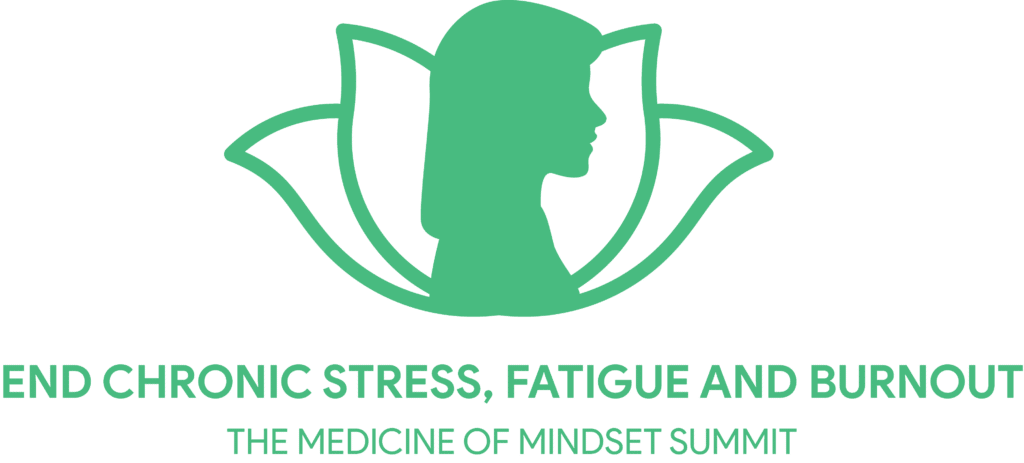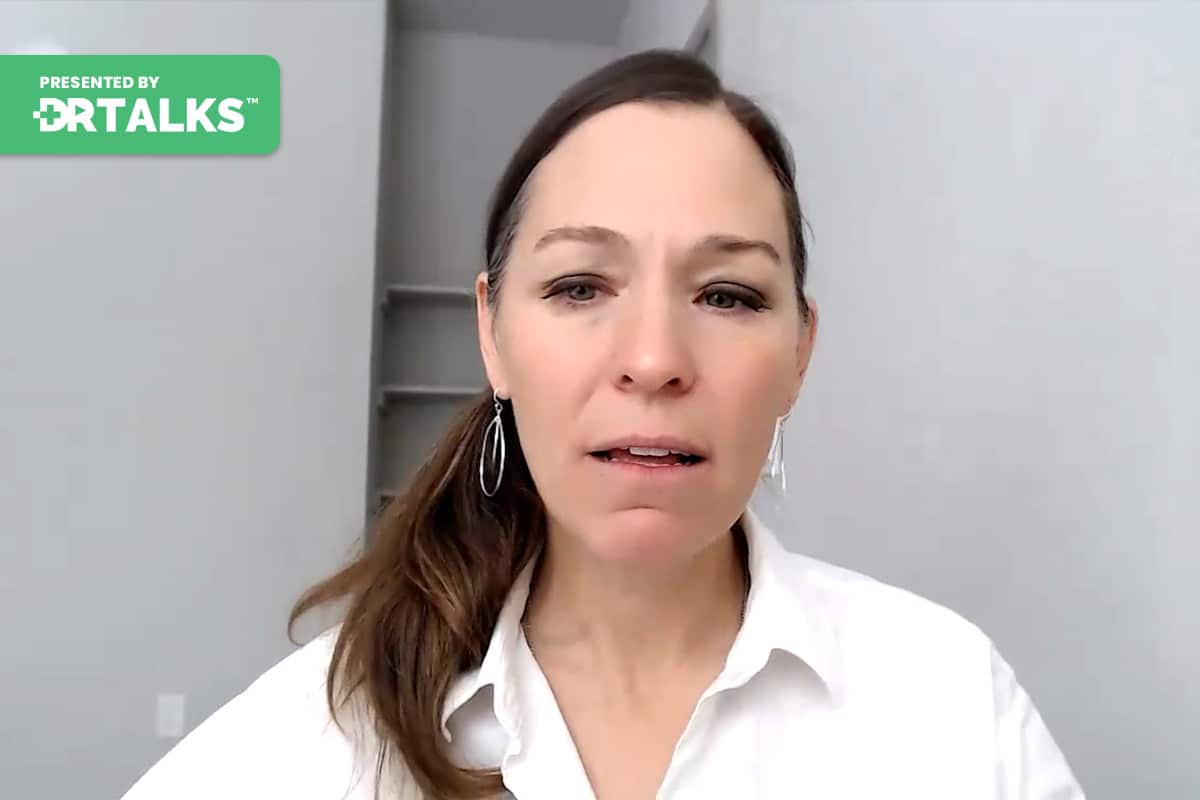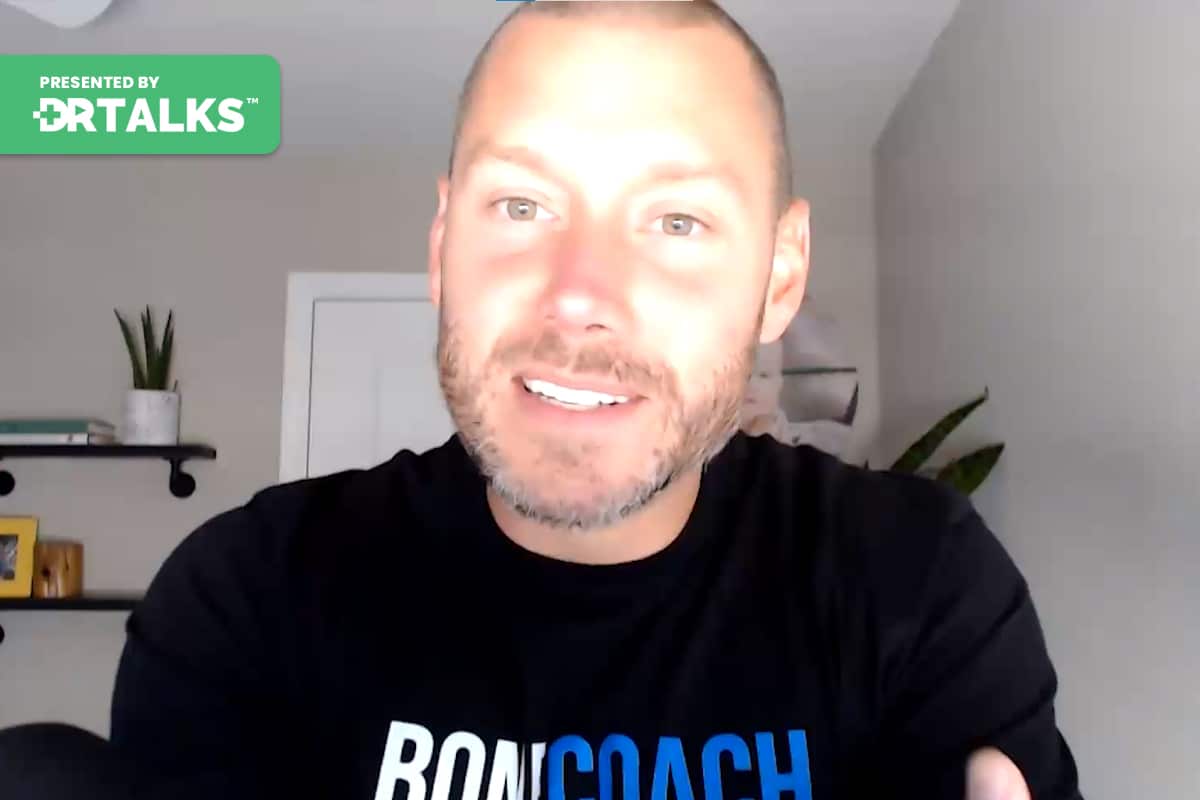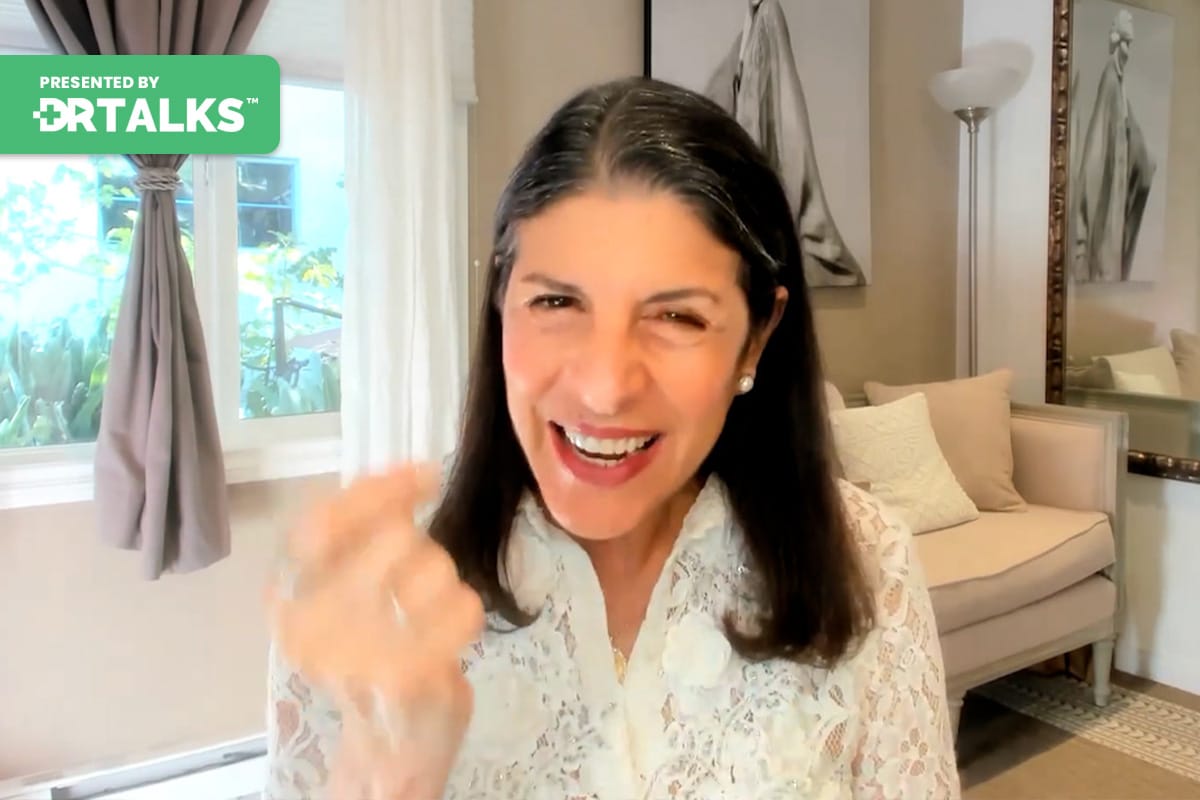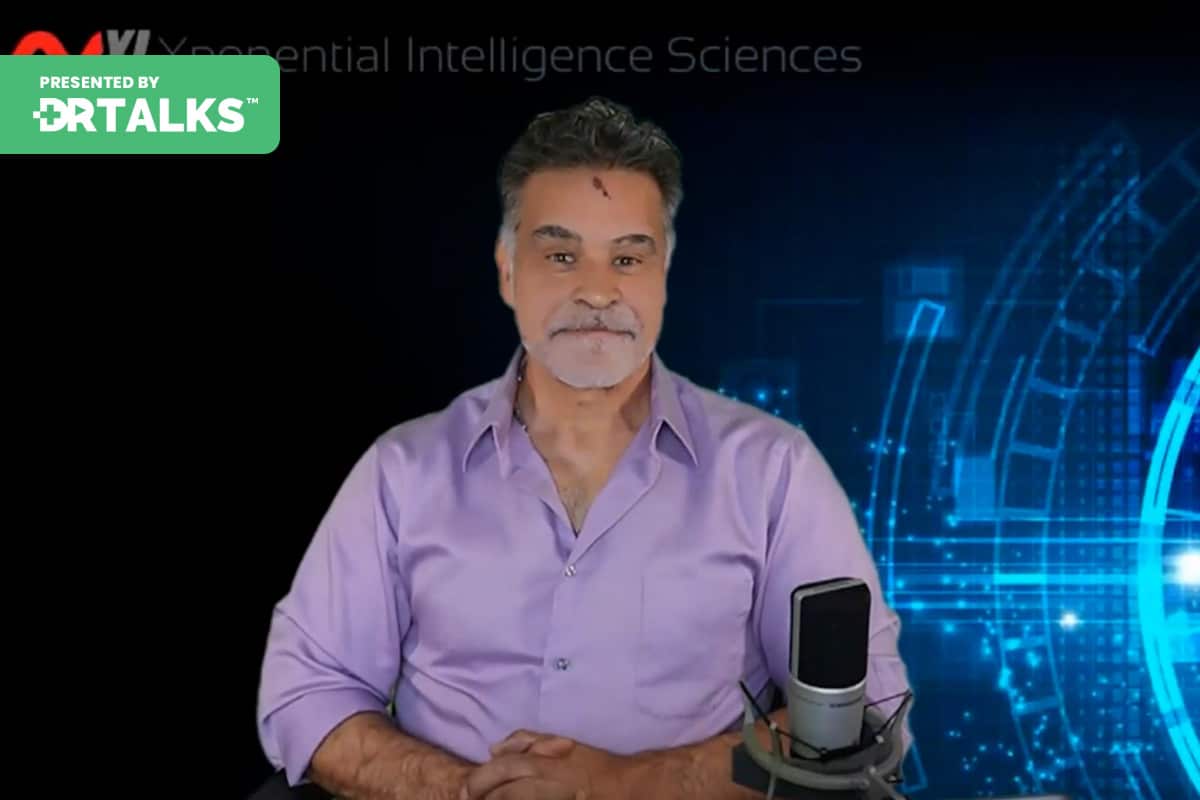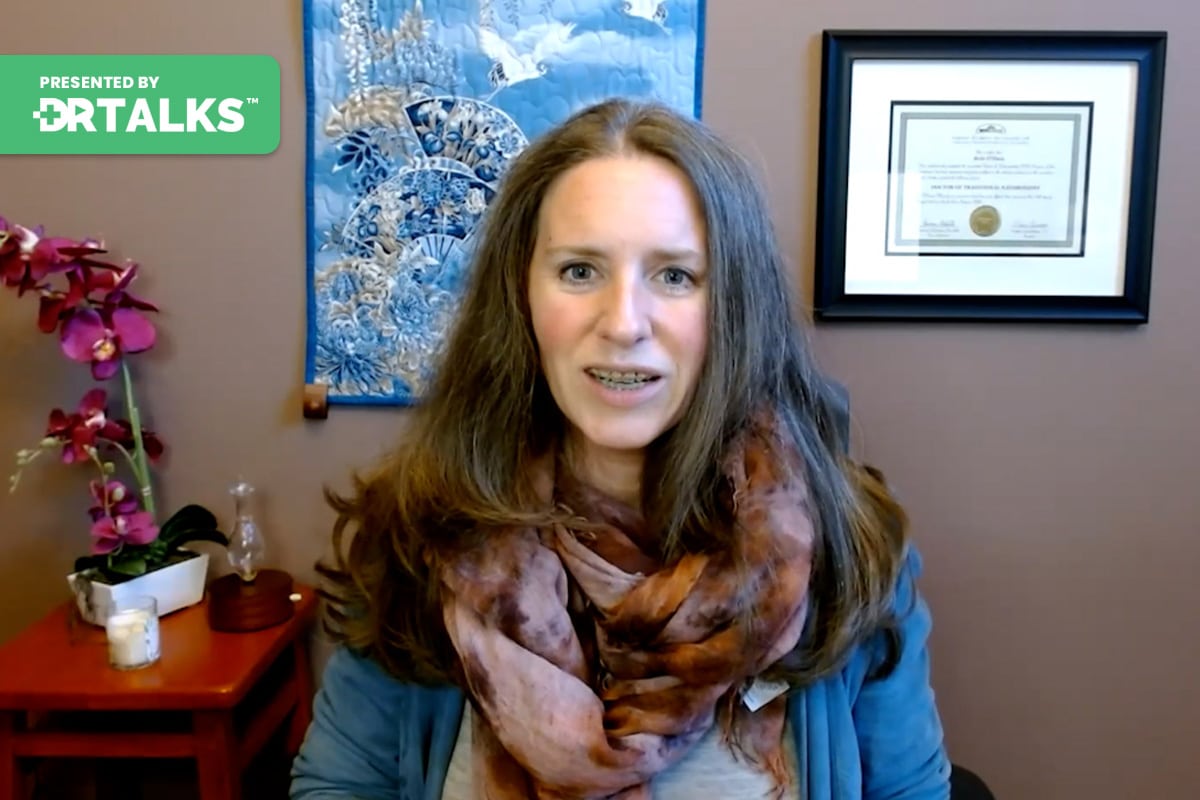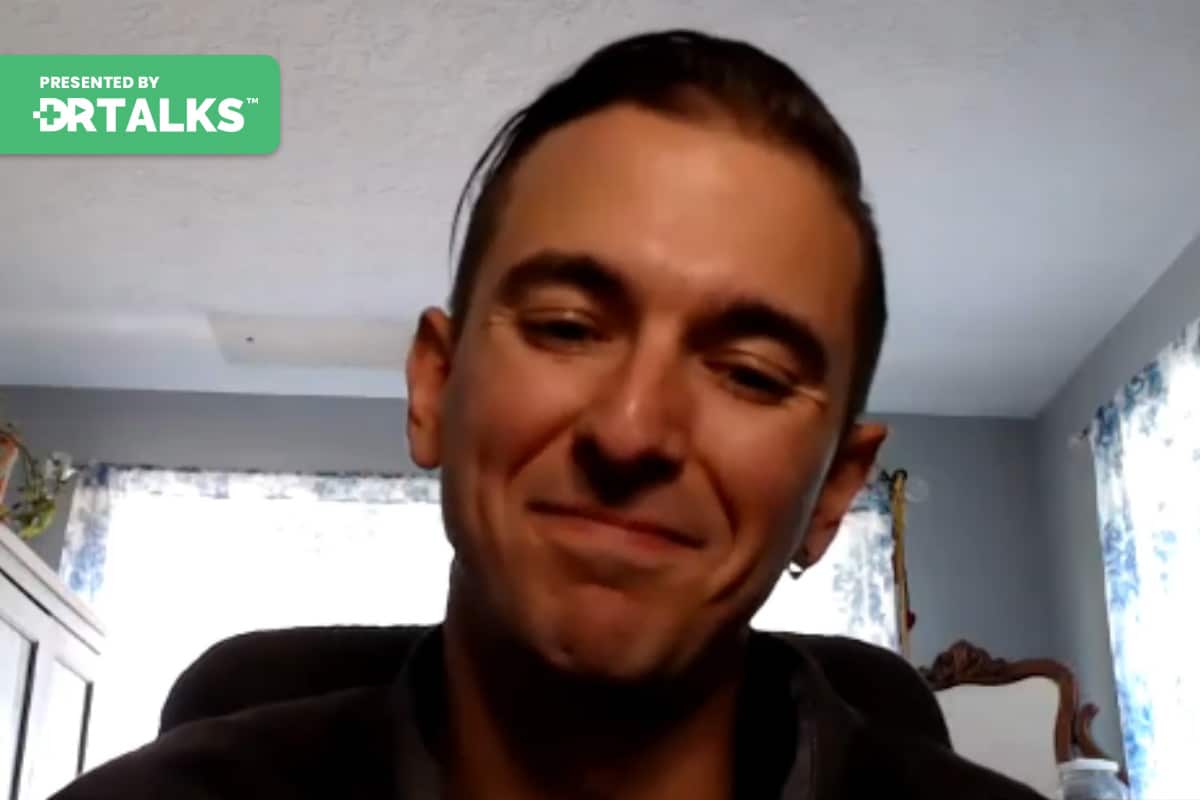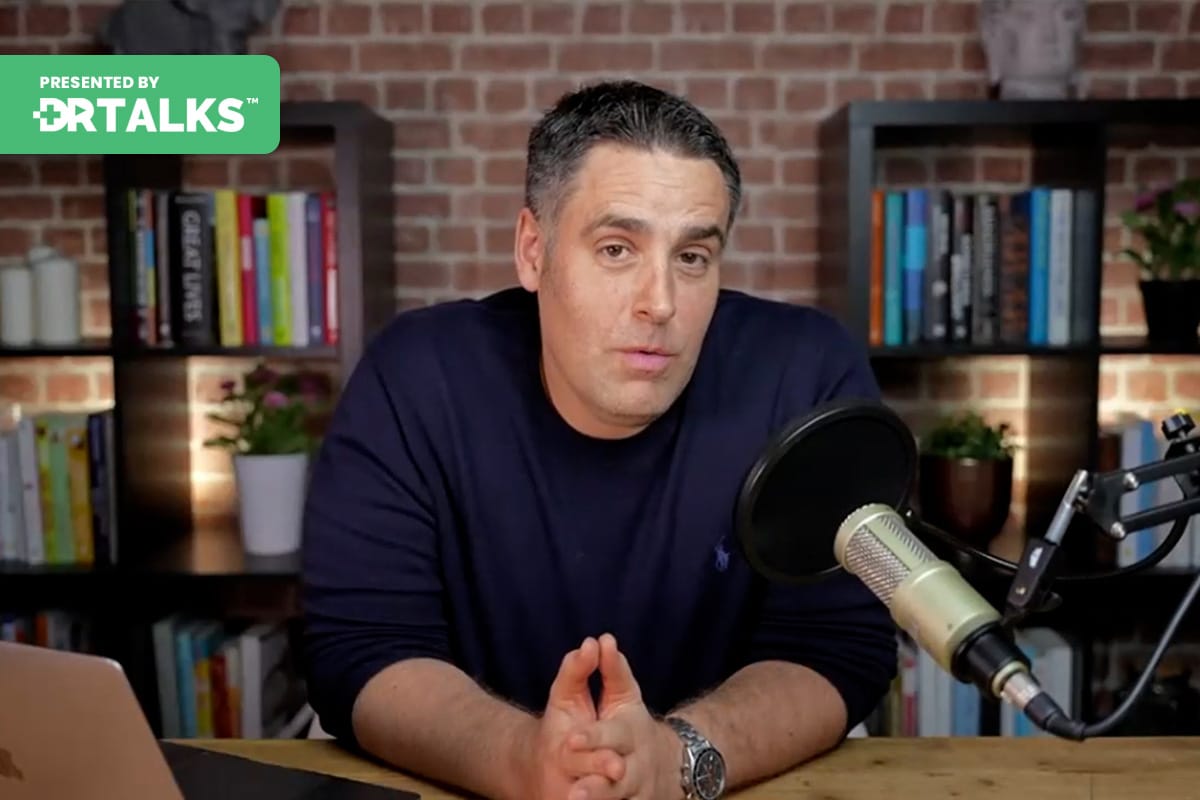Join the discussion below
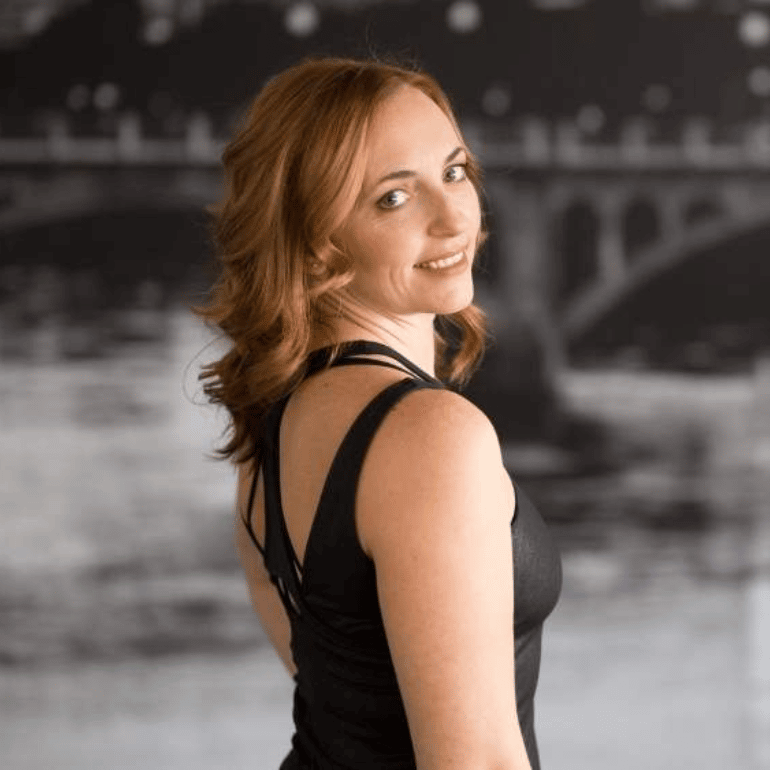
Jana Danielson is an award-winning wellness entrepreneur who through her own experience with physical pain turned her mess into her message which has now become her mission. She is an Amazon Best Selling Author, owner of Lead Pilates and Lead Integrated Health Therapies, her bricks & mortar businesses and the... Read More
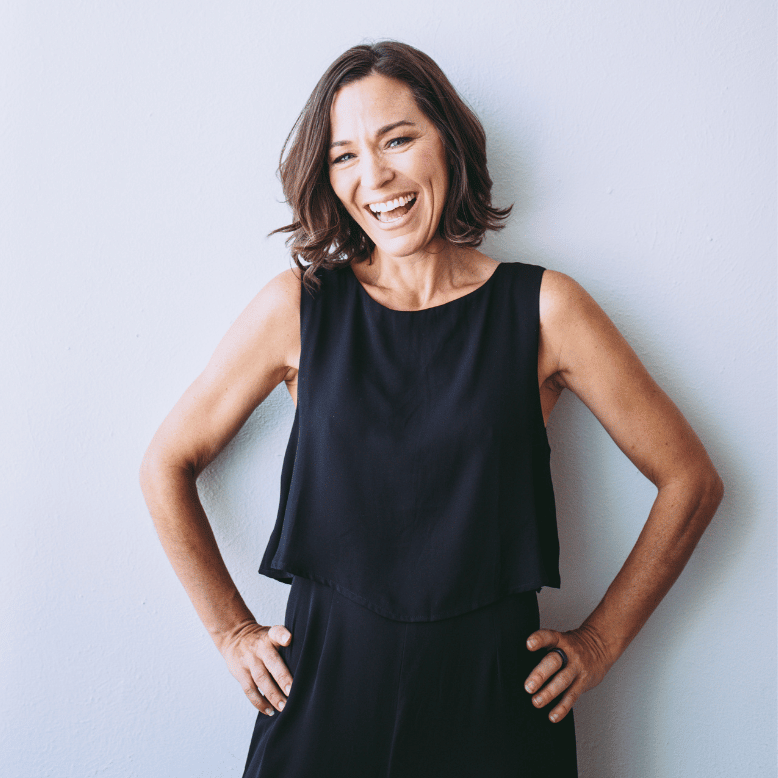
Heather Aardema is a National Board and Functional Medicine Certified Health Coach. She is the founder of School of Living Lighter, a weight loss methodology grounded in minimalism, functional medicine and cognitive behavior. By releasing the clutter in their minds, bodies and homes, her clients are actively living lighter as... Read More
- Is clutter ruling your life?
- How do you define clutter and does it mean more than just having lots of ‘stuff’?
- This session will cover examples of mind, body and home clutter and you will learn simple ways to shift to take a lighter path and how can this make a difference in our health
Jana Danielson
Welcome back everyone to The Medicine of Mindset Summit. I’m Jana, your host and really excited about who we have coming up because I think we all could use a little bit of a lighter life in lots of different ways. And so my guest, I can say is my friend Heather Aardema And I am so excited that she said yes to this project that you’re a part of also this week, watching every single day. So let me tell you a little bit about this amazing woman she is, I love this in her bio. She starts off by saying she’s a former Clutterbuck herself turned minimalist and how many of us are like, oh yeah, that’s actually what I am, I am the clutter bug, but I maybe want to learn about minimalism and she’s the founder of the School of living lighter. So who doesn’t want to go to that school? Right, yes, please sign me up as a former ad executive. This is what I find so brilliant. So she spent over two decades convincing people through her work that they need the latest fill in the blank gadget to make their life complete, to be happier to make things more simple. And then she herself started finding a little bit of a struggle for a deeper meaning with what is this life, She found her health and her wellness, her home not feeling as light and areas. I think she would like it would have liked it to be. And really she discovered minimalism and the rest is history. We’re going to hear how that changed her home, her life, her family and I’m just excited to get into this topic of finding a lighter way, a new way and what that does not just to our physical body, but our emotional body and our spiritual body. And so heather, Thank you so much for joining us here on the virtual medicine of mindset stage.
Heather Aardema
Thank you so much for having me. This is going to be a lot of fun.
Jana Danielson
So let’s just start, Let’s define, We’re gonna like hitch our wagon to a few really important concepts here. Can you help us define what clutter is?
Heather Aardema
Yes, so clutter is absolutely the piles and piles of paper that you see all around you? It’s the closets that are bursting with stuff, but it’s so much more than that. So I like to define clutter as anything or any thought or any action that gets between where you are and where you want to be, not just the stuff, it’s so much more, there’s so many more dimensions to it.
Jana Danielson
And so do you think that clutter? We’ve been hearing lots lately about, It’s becoming more trendy even though it’s been around forever about frequency, right? Everything is frequency. Everything is vibration. Does clutter have a specific frequency. And how would you, how would you explain that?
Heather Aardema
Oh, absolutely. So you can actually declutter your way to a higher, higher frequency. If you look around yourself, if you look at your home, the room that you’re in and if you feel light and if you feel joy, you probably don’t have much of a clutter problem. But if you are feeling heavy, if you feel shame when you are looking at your items and regret, that’s a lower frequency. So often we keep things because maybe we spent a lot of money or somebody gifted us something and we’re feeling guilt, we should keep it. Maybe we’re sentimental. Those are, those are all reasons or always that create kind of like a lower frequency and we are absolutely impacted by that.
Jana Danielson
So when we talk about home, let’s start with, start with home clutter. Because I think for many of us, you know, I can look around here and I can be like, oh yeah, like I could probably find a place for those card decks and really do I need like 17 pens in my little pen you know, holder. And so what would be some examples of simple steps? I think for a lot of people, they get stuck on the, what’s the first, what’s the first step? Because they think that it has to become this completely different situation like the next two hours, I have to completely change what’s going on in my space. How would someone start to declutter their home space?
Heather Aardema
Okay, so what we’ll talk about home clutter at school of living lighter, we’d like to look at clutter through three different dimensions or lenses. So we look at it as mind clutter body clutter and home clutter. And they are all connected. They’re all related to one another and mind clutter will impact your body. Clutter body clutter can impact home clutter home clutter will then impact mind clutter. And so it’s all it’s it’s if left unaddressed it all just gets heavier. The thoughts that we have. The scale the things in our homes if we don’t focus on this. So if we start with home clutter I mentioned the piles of paper. I had a acquaintance stopped by my house once and she walked through the house and she said heather where are all your piles of paper? And I laughed because I knew exactly what she was talking about. I used to have them. Don’t have them anymore. Excuse me. So it’s the piles of paper. It’s the things like that. But there are also other forms of home clutter that we might not necessarily think of at first. So for example is the T. V. On all day long. What are you listening to? What are those messages that are filling the home? Are they light? Are they full of possibility and potential or are they heavy? Are they full of fear and dread and doubt and uncertainty. So I like to share with the people that I are that are in my community focus on that home clutter. But remember it’s more than just the stuff, the tangible stuff.
Jana Danielson
So the papers, the piles of papers and what I’ve been, you know, trying to unpack from all of our speakers is little gems that our audience could become inspired by in our chat today and take action on something that they have been intending to for months and months or maybe years and years. So it can be really overwhelming to look at those piles of paper. And I’m excited for us to get into the body clutter because that’s what I help A lot of women with is their is their body clutter the head trash and all that, all that kind of stuff. And so we can feel super unsuccessful and just down and out because we look at our space and we think how did we let it, how did I let it get to this point? So what do we do? Do we set ourselves a time or five for five minutes? Just try for five minutes. Like what are some of those tangible things that you can say? You know what, As soon as we’re done this chat, I want everyone to do what
Heather Aardema
Yeah. Yeah. Okay. So the piles of paper by the way represent unmade decisions which is a form of mind clutter as well. Right? And so they we always think they’re gonna take so much longer to go through than they actually do. It’s like cleaning the kitchen. We think it’s gonna take so long. But really it doesn’t when you are ready to make those decisions, you can just fly through all of that paperwork and so forth. And so where do you start with the home clutter we have a compass and we call it the soul compass school of living lighter. But I love calling it the soul compass because it just feels good. And on that compass there are four coordinates. And so at the top of the compass where north would be, we have listened. And then if you make your way clockwise, it’s listen, then let go, then learn and then love. And so this compass works for any kind of clutter you have in your life. And so if you are looking at something and you don’t know what to do with, you don’t know whether you should get rid of it or not. Your paws, you get rid of the distractions or walk away from distractions. And you ask yourself what matters most to me, what do I care about? What do I want? My home environment to look like? How can I create this more of a supportive environment? And you run through a series of questions and you get some clarity. Once we have clarity, the mind will fill up with all kinds of reasons for why whatever it is that we want is not gonna be possible. And so that’s the second step, that’s let go, let go of those reasons, you can do whatever it is that you want. Don’t let those reasons hold you back from your dreams of creating a lighter home because when we have that lighter home, we have a lighter body, we have a lighter mind. We have a lighter life. It is so worth it. So once you address all those excuses, then we move into the learn focus and that’s where we go from deciding to declutter to actually doing it. And this is one of my tricks and I love it. It really is powerful. So when you’re looking at your items, Ask yourself one at a time, does this item, does it feel light or heavy? If it’s light it’s right and you keep it. But if it’s heavy, that is your permission to let it go, even if it’s something that’s sentimental, even if it makes you a little bit nervous. But you know, once you let it go, you will feel that much better. And so that’s the question.
Ask yourself, is it light or heavy? Is this thing that I had that I’ve had for X. Amount of time, is it light or heavy light? You keep it because it’s lifting you? It’s raising that frequency. But if it’s heavy? I mean this leads basically heaviness. If you connect the dots leads to deceive. And so the goal is to let go of the heaviness. So you can create that support of so that’s learn. And then we moved to love and I say with any kind of process on any journey that you’re on, if it’s painful journey, if it’s hard to do if it’s full of restriction. If that’s your perception, you’re gonna stop doing it. So you’re gonna declutter for five minutes and then you’re gonna say I’m done or you’re not gonna even start decluttering and so we have to make it fun if we infuse love into the process, it becomes so much easier. So turn that music on whatever the music is or give yourself a goal or create an incentive doesn’t matter as long as it works for you.
Jana Danielson
So what do you say to those people like me? So I’m actually here sitting at my kitchen table and it’s also my office during the day, right? So my boys come and go, my husband’s working upstairs and you have me thinking because I have my computer set up on my little stand and I’ve got, you know, my I’ve got a few crystals and I’ve got, you know, my like I like to set my workspace up, but I leave it here. So when we eat dinner, some of us are either sitting in front of the tv or some of us will sit on the other half of the dining room table. What landed for me as you were speaking was in spaces where they serve maybe a dual or a triple purpose, it feels like when one purpose is being, you know, when my work day is done, I feel like I should easily be able to fold up my little desk, my little stand, get rid of my light, my mic, move it and maybe I need to get like a little tupperware container where I can tuck everything away and put it in my pantry where it has its spot and then our table can become a place where our family can sit and enjoy. Is that like, am I on the right track?
Heather Aardema
You are on the right track, but be careful about judgment and self judgment because that is another form of clutter and so I can hear the judgment coming through of well we have this table and if I leave my work stuff here, it’s gonna get in the way of the family experience. And so at the end of the day, ask yourself, what do I want this table to be used for? What kind of experiences do I want to be had at this table? There’s no wrong answer. And so it’s okay if it serves you as a workspace and keeping the stuff there and there are all the things that you love and that are light that can be okay. But if there’s a deeper thought that is gosh, I would really love to sit around the table as a family in the evening. How easy is it to take all your things, put it in a tupperware box, keep it kind of organized.
Put that box somewhere else. It probably would take you under a minute, it would write. And so absolutely you could get rid of it. Here’s the thing. Sometimes, you know, I have clients that will have tables and maybe a spouse will work at the table and the other spouse, well, the other spouse would be my client because then she would be telling me my husband is all the stuff at the table. It drives me crazy and we can’t have dinner there. And so it’s not that we can control the actions of anybody else, but we can have conversations and so ask your family, does it bother you that I have this stuff here if it doesn’t bother them and it doesn’t bother you and you like the things and you don’t want to move it, allow yourself that gift to keeping the things there if it does deep down inside. And you know the answer because I’ll ask you right now, if you were to keep everything there and not remove them, does that feel heavier light?
Jana Danielson
It feels heavy.
Heather Aardema
This question connects us to our intuition and There are so many distractions. I mean, I spent 20 years creating distractions right through the advertising agency and getting people to buy things and buy their way to happiness and all those distractions, they interrupt our connection to ourselves. And so you have that answer right? You already gave us, you’re gonna get the tupperware, you’re gonna put it in there and then it will take you less than a minute and then you’re gonna tell me about the beautiful experiences you’re gonna have around that table with your family.
Jana Danielson
Well, we can all actually sit down and have dinner. It also becomes like our, I walked into my pantry and I saw our scrabble game and I was like, I can’t remember the last time we pulled out, we used to play scrabble all the time and then I was like, wait a minute because I, I’m and and lately has there’s been, you know, lots of abundance of opportunities and work. And so I’ll even find myself because my workspace is set up, I’ll be doing something with my family and I’ll go to fill my water bottle and I’ll make a pit stop right here to be like, let’s just check my email and I’m like, wait a minute I’ve been doing, I’ve been here for 12 hours today. What can’t wait till two. So I’m actually finding it’s a bit of a slippery slope for my own mindset and if it wasn’t here, then I would draw the line in the sand with, you know, my work day, even though it’s an entrepreneur, but my work day is over. I’m not as impactful as I am at eight at night, why do I have to check my email at eight p.m. right?
Heather Aardema
Well and I laughed out loud because that really resonates with me. I have the same desire to go check that email and again if there’s shame or judgment that’s mental clutter, you know it’s it’s one of those where you say I’m going to be okay with checking my email and I’m not gonna judge it so there’s no negative or I’m not going to, so there’s that old saying out of sight out of mind and so it sounds like you have this deeper desire for board games on the table for family connection. Yes we go to work, there’s a subset of people that are addicted to work. I was one of those people, I’m still working through that we get a dopamine hit anytime we get an email we get a dopamine hit, anytime we see that somebody signed up for something it’s so fun and our physiology is rewarding us. So no shame for that desire. But because you have that prefrontal cortex as all humans, do you get to say, you know what I know checking email or my computer would feel good and not but and I’m going to opt out of that right now because it’ll be there for me in the morning instead I’m gonna spend time with family.
Jana Danielson
So good, so good and so in that same realm this whole concept of fomo the fear of missing out. Right let’s talk a little bit about that because that is what you would call mind clutter, I’m assuming, and like what’s the, you know, if this is the kryptonite, what is the, what is the antidote to it?
Heather Aardema
So, right, so part of the human experience right now, in this day and age, it’s natural to have fomo because like all the big industries and big business and advertising and media are all designed to create something called fud fear, uncertainty, doubt fomo all of that, and so it’s natural for it to be there. You’re right, it’s a perfect example of mind clutter and the antidote is something called como some have heard of it, some have not, have you heard of demo? Do you know that one? So this is a lovely, a lovely approach and I learned it from the minimalism community and it’s the joy of missing out. joy. So, for example, let’s say you’re invited out to an event, but you’re exhausted, you’d rather stay home, but there’s a part of you that I really want to go, maybe you’re an extrovert and you feel that fear of missing out to be able to say no with grace and compassion for yourself, you anchor into that joy of missing out. So that joy could be, well, I’m really gonna get a good night’s sleep, and I’m really being intentional with my self care and tomorrow is gonna be such a great day because I am opting out as something that would probably feel heavier in the long run than lighter joy of missing out works for everything.
So we talked a little bit about a little bit about mind clutter and a little bit about home clutter, but body clutter, and so a lot of body clutter can be represented by the foods that we eat, where we are having symptoms. And so I don’t like to identify one food or another as the culprit. But if you’re having a symptom to something, you’re eating indigestion, headaches, acne, a swollen belly flares, autoimmune flares, then that food is clutter in your body and you might feel like, oh, that’s not fair, I want to eat that thing. But if you anchor into Jomo instead of focusing on your fomo, then it can be like, well, if I don’t eat that thing, I won’t have the belly ache, I won’t have the headache, I’ll feel so much better. And guess what? There’s probably another option that is close enough that is not going to give you the symptoms and you can go that route.
Jana Danielson
You made me think back to this past summer when I did exactly that I was having a lot of bloating and just, you know, and I have c bo, right? And so I tried different ways to deal with it, and it wasn’t until a friend of mine actually reframed what you’re calling. My body clutter. I initially I used to think of it as those are the foods that I cannot have and no one’s gonna tell me I can’t have something because when I want it I’m gonna I’m gonna have it right? And she helped me reframe it too. Would you take the time to figure out how to heal your body? And that little reframe for me was like and I mean the answer was an immediate yes of course I’m going to. So I like how you positioned this because we get very I believe that as human beings we are very habitual and sometimes we go through our day and we eat the things just because they’re convenient or we eat them all the time and yet we don’t connect the dots between maybe you know maybe this is what is doing it for me, so I appreciate the way you, the way you mentioned that
Heather Aardema
you know can I expand just one more thing with that area. Jomo can help so much with these thoughts. Let’s just say your doctor, your practitioner is asking you to go an elimination diet and you are like it’s not fair. I don’t want to and it just feels so restrictive. when you address your thought about restriction or deprivation and realize that those thoughts are really just distractions, getting you in the, getting in the way of where you are and where you want to be and you realize that they’re distractions and you let them go, you’re liking it so much lighter. It’s so freeing. So I’ll share personally, I don’t eat gluten, I don’t eat dairy. There’s a couple other things that stay away from as well. And some could look at my diet and say, oh that’s so restrictive, that’s horrible. But I don’t look at it that way because that would be clutter, that would be mind clutter. Instead I look at, I have this amazing protocol, it tastes so good. My meals are beautiful and big. I am like, I don’t eat a lot of meals over the course of the day, but when I eat I eat and no shame there, I I enjoy what I have now, that’s one way of going about it. Or I could go like steaks have gluten and dairy darn darn darn, but what is that, that’s going to just create a negative, right? And so when we feel restriction inside or resentment or deprivation, really, really curious because usually if we lean into what our thoughts have been about that and if there’s any availability for some different thinking, that’s where change happens, that’s where new possibilities are born.
Jana Danielson
So good heather. That was so, so good. And that’s exactly what I experience is I found through my process of healing my gut that it was dairy and eggs and I would have eggs every morning, right? Because that was and I’m not saying that eggs aren’t healthy, but in my body, it didn’t and by the end of the day I would look five or six months pregnant and I’d be like, what is it, like what’s happening here? Right? So as soon as I did that, and I’m not saying that I if it’s someone’s birthday, of course I’m gonna have a piece of birthday cake that might have an egg in it, right? And I’m totally okay with that. So, thank you for bringing that up because I believe that we have this when we hear the word, you know, restriction, it becomes this, you know, either I am doing it or I am not and there is this, there is this beautiful, you know, middle ground and so,
Heather Aardema
Right and we get to decide how we interpret our world and we can decide if we change our perspective or not. And it can be the most incredibly freeing freeing thing to do. And so it’s there are a lot of labels, I think labels are also mind clutter and especially, you know, in the wellness world where, you know, maybe maybe there’s an eating disorder or perceived eating disorders, things like that. And sometimes those labels even get in the way of new possibilities, We hold onto them really tightly sometimes. And so if we open up too, I wonder if I could think about this differently. That is where the keys to freedom are. So it’s like it’s I want to give hope to everybody that where you are right now is fine. It’s the option. It’s where you are something you’re choosing. But if you want to be someplace else, when it comes to your relationship with food and with life and with others that anything truly is possible.
Jana Danielson
The concept of wanting something different for our lives, right? We want something new to come into our lives. You’ve positioned and frame this so beautifully because whether it’s body clutter or mind clutter or home clutter, how can you expect that new energy, that new frequency that those new people, those, you know, those new relationships, those new experiences. How can they come in if there’s no room? And I think that’s one of the messages that, you know, I’m reading between the lines for you here is that the choice for new does require a recognition of what needs to be, you know? Well, de cluttered to create that space. Can you talk about that a little bit?
Heather Aardema
Absolutely. It’s about letting go of the thoughts or the things that are holding you back and it’s always connected. And so that letting go is that second step in the compass. And I’ll share my personal health journey. We have been dealing with toxic mold for a number of years and we are, I live in a very empty space right now and I’m okay with that, we couldn’t bring anything from our home because if we had that would have been contaminated and it would keep me sick. I do want to say I’m grateful that my husband and kids are okay, I’m the only one that’s impacted. But I also believe I deserve to live in a safe space and so we’re going through that right now, you know, right, this very moment.
And so my husband wanted to bring in a new black leather chair that was, you know, he just bought a few months ago that’s in our house into this new space, the safe space and I said no, because the possibility is that could impact me and could impact my house and so all about letting go and so we’re all working on that, we’re all on the journey together. When my kids realize that their stuff was also keeping me sick in the house, they’re like let’s just get rid of everything. And so we did a first massive decluttering and they were all gung ho, my husband was gung ho, I was gung ho and then all of a sudden this was over a long weekend.
My kids got overwhelmed, they started to experience normal human emotions and what they did was so brilliant and I think a lot of adults can learn from what they did, they remove themselves from the situation. So they left their bedroom? They went out to their tree for, they took about two hours to play some board games in the tree fort, calm themselves ground themselves. And then they came back in and said okay we’re re interject and had gotten a little bit too hard for them. And so instead of just trying to move forward anyway or instead of buffering with food, alcohol or something like that, they removed themselves, they centered themselves, they connected with one another. I could hear laughter coming from the backyard and I thought that was really beautiful so that the letting go step, it’s so much we, what I think is that it’s really the resistance to letting go. That is so hard not to let him go in itself. And excuse me. That could be also with yeah, any kind of health journey that you’re on, where that resistance is, that resistance to change when you let go of that resistance, everything becomes so much easier.
Jana Danielson
And I mean we’re here this week talking all about mindset and reminding our audience that I mean the simple title of the summit is the medicine of mindset and I’ve said this on more than one occasion during these interviews that this week is the vision of it is a reminder that before medicine came in a bottle and was created in a lab. Medicine was offered to us through what the earth provided, what our minds could do, what music could do, what breathing could do. And so can you just touch on that a little bit because everything you’ve talked about really does tap into our thoughts, right.
Heather Aardema
It absolutely does. And the medicine of mindset is so powerful and so I love that you decided to create this summit. It’s such a gift for all of us wherever we are on our journeys. And so I want to share a story. When I share a story of two clients, they had at the same time, their circumstance Was very similar. Both were in their 50s, both for females. Both had lost their dad three months prior. The dance passing was expected for both of them. It’s always a surprise. It’s always horrible initially, and it wasn’t like a sudden accident, a car accident or anything like that. And so the same thing had happened. Their fathers had passed away. Now, these two clients didn’t know each other, They just came into my world at the same time. It had so many similarities. one of the women was grieving and through her grief, she decided to eat everything she could, those are her words, everything in sight.
And so she buffered from those very uncomfortable emotions and feelings and she tried to fill a hole that could not be filled with food Through her grief. And so she came to me and she had put on £30. The other woman who had also lost her father told me that at his funeral she decided in his name that she was going to take the best care of herself ever. And so she had already started to lose weight. She had created a running practice and a breathing practice and she wanted even more results when she came to me. So it’s the idea of the medicine of mindset mindset is everything. Because the only difference with those two women was what each one decided chose to think about the circumstance about their father passing. And so the circumstances are the same. The thoughts were different. The mindsets were different whatever we choose to think. And every thought is optional. If there’s a thought that’s not serving you, that’s not doing you any good. That’s leading to resentment and anger and things like that. You can swap it out for a different one. It doesn’t have to be the exact opposite. It can be a neutral thought that leads to a neutral feeling for those thoughts and feelings lead to our actions and results. And so it’s I know that’s kind of sounded formulaic, but at the end of the day it doesn’t have to be so complicated. And complication can be a distraction. And so if we think about what is our goal when it comes to our well being, what do we want to experience? It absolutely can be achieved once we figure out what our distractions are, some might think, well, cibo cibo can be kind of complicated. I have SIBO as well, small intestinal bacterial overgrowth by dealing with it for years. And then we found out as long as I was in a home where there was toxic mold, I was always gonna have cibo, ah now we have the distraction, the distraction is a toxic mold and so, and that’s just one example, there are so many but when we get really clear on what it is we want and we let go of the distractions and we let go of the complication. Health and wellness really is right there, right in front of us. It’s accessible to all
Jana Danielson
That was so beautifully said, I love that. And so in your area of expertise, I mean you become an expert in this area of minimalist living and you know, decluttering the body, the mind, the home because we know that it’s like a trifecta, right? One without the other two is not going to be as impactful. And so what do you feel is not being talked about enough in, in, in this area that you’ve become so passionate about? Well, I guess I wish the work, I mean, I’ve seen how much lighter minimalism has made my life and by the way, when I say the word minimalism, I don’t define it as deprivation and restriction, although initially I did initially I was totally turned off and I thought what a horrible concept. And then I evolved and I grew and I realized that minimalism can be this absolutely beautiful pathway toward intentionality. And so it’s all about removing the distractions that remove you from life or that removed joy from life.
And so I would love for this idea to get shared with more because it’s there, it’s accessible for all and it has such a big impact on our health, our surroundings do. And so there’s more and more research, more and more research that talks about the psychology of clutter, the physiology of clutter. So when we see the clutter and we start to get agitated, you bet that there is a cortisol reaction happening in your body, which is not something you want to have happened to you all the time and you don’t want to be in a constant state of fight or flight and that’s what clutter can do to you receive clutter? We know that clutter also impacts decision making. So if you see a big mess in your house, are you more likely to go get the ice cream out because it just is so much yummy or the chips that’s what a mess will do to us. And so I would love for this idea that’s so accessible to all of us. You don’t have to have a stark home. I know my background is stuck right now. That’s not me though, This is just a temporary place. But you don’t have to have like a neutral, stark, boring life. You can have a very colorful, vibrant life full of the things that matter most to you. You get rid of those distractions.
Heather Aardema
And so as we close, I’ve been asking all of my amazing speakers, this, this question share with the audience, invite us in right into the mind of Heather Aardema and what are some of your non negotiables as far as habits or strategies that you use in your own life with your, you know, with your mindset,
Jana Danielson
Okay, I have two mantras that I use because this toxic mold journey has been encompassing. It’s one of those things where you can’t see the mold, it’s invisible and a lot of people would be fine. but I’m not and it’s okay, it’s okay for me to own that and acknowledge that and say I need something different. And so one of the mantras that I use every day is just the word trust and so simple trust. Any time I’m in a situation that’s out of my control, if I’m on a plane and if it’s really turbulent trust and that brings lightness to me, the second mantra is the mantra of I am lights, I am light. I mean I am right, I’m stardust, I can shimmer, I am light. I’m a reflection of all around me. And so when I tell myself I am light, it gives me a road map, especially if life is feeling kind of heavy, but if I remind myself, I am like, I am like what will get me to lightness? What will get me to lightness? That road map is just so much easier to follow because I know exactly what it is I’m looking for. -Heather that’s beautiful and simple and very easy to remember. So thank you for sharing that and now I know there’s people in our audience that are wondering how they can connect with you or learn more about the work you do. So where’s the best place for them to find out?
Heather Aardema
Yes, So if you go to my school of living lighter there are plenty of essays, essays about well being and minimalism, intentionality, simplicity and so forth. Lots of free materials you can get access to our compass. So schooloflivinglighter.com Same on facebook and instagram is Heather Aardema.
Jana Danielson
Amazing. Thank you again for just giving us a new perspective on you know, the just the physical, the you know, the physical space, the physical body and the physical mind and how that permeates into everything that we do so from the bottom of my heart. Thank you so much for being here.
Heather Aardema
Thank you so much for having me. It was, it was delightful.
Jana Danielson
Amazing. Alright everyone, so that wraps up another episode of the Medicine of mindset summit, we’re gonna be back with another really cool speaker and so go and either refuel, rehydrate, head to the bathroom, get some sunshine, get some fresh air and then we’ll see you back here on the next episode.
Downloads
